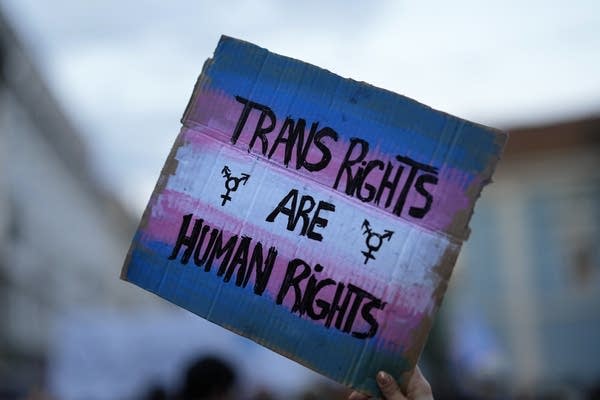Minnesota events will honor transgender people killed this year across U.S.
Nov. 20 is Transgender Day of Remembrance, when people around the world honor transgender, nonbinary and gender-nonconforming people who have been violently killed

A demonstrator holds up a sign during a march to mark International Transgender Day of Visibility in Lisbon, Portugal, March 31.
Armando Franca | AP
Go Deeper.
Create an account or log in to save stories.
Like this?
Thanks for liking this story! We have added it to a list of your favorite stories.


